Wirtschaftswunder? ¿Qué pasa en Alemania?
Thursday, March 28, 2024
Germany, once the economic powerhouse of the European Union, since its days as the European Coal and Steel Community (1951), the European Common Market (1957), the European Economic Community (1967), and the European Community (2002). It finally became the European Union in 1993.
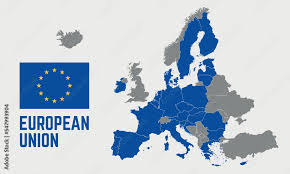 The original six countries, Belgium, France, (West) Germany, Italy, Luxembourg and the Netherlands, expanded to 28 at its peak in 2016, now 27 following Brexit, when the UK opted to leave the Union. Following a referendum on 23 June 2016, Brexit officially took place at 23:00 GMT on 31 January 2020. The original six countries, Belgium, France, (West) Germany, Italy, Luxembourg and the Netherlands, expanded to 28 at its peak in 2016, now 27 following Brexit, when the UK opted to leave the Union. Following a referendum on 23 June 2016, Brexit officially took place at 23:00 GMT on 31 January 2020.
So, what is happening in Germany?
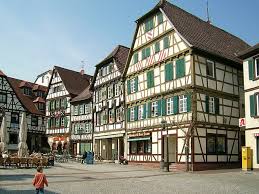 Let’s take a look through the example of a small town in Baden-Wuerttemberg, south Germany. Let’s take a look through the example of a small town in Baden-Wuerttemberg, south Germany.
Retired Philosophy professor, Diego Núñez, wrote an article last October in Diario Sur, based around the town of Bretten (pop. 20,000) 45 kilometres to the north of Stuttgart.
I know Bretten quite well. As a 20-year-old student I worked one summer at the nearby motorway services at Bruchsal. Decades later, having acquired a German wife, I have been a frequent visitor to Bretten, as it’s the main town in the area where my German stepson Johannes lives and works.
El drama alemán
I was surprised at the content of Professor Nuñez’ article.
He reports that he went out one day at the end of September 2023 with his wife to go shopping. I assume that they now live there.
First stop was the Dry Cleaner’s. To their surprise there was a big sign on the locked door stating that the place had shut down.
A passer-by, noticing their surprise, commented that all the Dry Cleaners in the area had closed down. The nearest one now was in Karlsruhe, 30 kilometres away.
Next stop the Bakery. Of the four that co-existed in the town, only two remain open, they were told by the baker, an acquaintance. “I’ve kept going by maintaining my prices but by reducing the size of my loaves and rolls.” he told them.
Technical Recession
And so it continued. As industry in the area has declined so has the number of small businesses. The reason, they all say, is the high cost of energy.
 The federal government tries to mask the situation, but the fact is the German economy has stagnated and there is no obvious way out in the short term. However hard it tries to deny it, Germany has been in a technical recession for months. The federal government tries to mask the situation, but the fact is the German economy has stagnated and there is no obvious way out in the short term. However hard it tries to deny it, Germany has been in a technical recession for months.
There is a pronounced sense of economic pessimism. According to the Federal Office of Statistics in Wiesbaden (Hesse), food prices have soared compared with the year before. For example, bread has gone up by 10.7%; fruit by 8.2%; and vegetables by 7.9%. In the case of fuel, petrol went up by 1.4% and diesel by 3.5% in just one month, from August to September 2023.
 Faced with this scenario, the typical reaction of German citizens is to save. Faced with this scenario, the typical reaction of German citizens is to save.
Progress on digitalisation and improvements to infrastructure have both been slow.
The federal government is doing what it can, but discontent among the population is palpable, with many citizens turning to the right-wing party Alternative fur Deutschland (AfD).
Germany, under Chancellor Olaf Scholz (SPD) has lost its place in the world hierarchy, but that’s another story for another day …..
© Pablo de Ronda
Acknowledgements:
Diario Sur
Diego Núñez
El Mundo
Federal Office of Statistics, Wiesbaden
Paul Whitelock (translator)
Wikipedia
Tags:
Alemania, AfD, Alternative fur Deutschland, Baden-Wuerttemberg, bakery, Belgium, bread, Bretten, Brexit, Bruchsal, Chancellor Olaf Scholz, Common Market, Diario Sur, Diego Núñez, diesel, digitalisation, Dry Cleaner, economic pessimism, economic powerhouse, European Coal and Steel Community, European Community, European Economic Community, European Union, Federal Office of Statistics, federal government, France, fruit, fuel, German citizens, German economy, Germany, Hesse, high cost of energy, improvements to infrastructure, industry, Italy, Karlsruhe, Luxembourg, motorway services, Netherlands, Olaf Scholz, Pablo de Ronda, petrol, Philosophy professor, small businesses, SPD, Stuttgart, technical recession, UK, vegetables, Wiesbaden
 0
Like
Published at 12:08 PM Comments (0)
0
Like
Published at 12:08 PM Comments (0)
“Hotel” Indiana
Saturday, March 23, 2024
By Pablo de Ronda
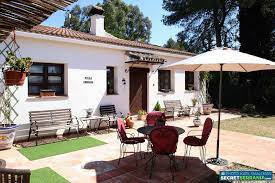 Our domicilio, our home, just outside Ronda has lots of great features and advantages over our previous abode. That's why we bought it some 13 years ago, six months after we got married. We moved in on 5 February 2011. Our domicilio, our home, just outside Ronda has lots of great features and advantages over our previous abode. That's why we bought it some 13 years ago, six months after we got married. We moved in on 5 February 2011.
Since then, we have had regular “guests”, from our UK and German families and from friends old and new. We even took paying guests for two summers in the aftermath of the Covid.19 pandemic, in order to replenish depleted coffers.
The Early Years
Since our move in 2011 we have had a regular stream of visitors, except for the lockdown years. Close family come regularly; extended family less frequently; friends old and new as and when.
Rita’s three siblings have played a significant role.
Brother Horst was staying with us in Montejaque with childhood friend Klaus (d. 2023), when we viewed Villa Indiana for the first time. He liked it and endorsed our decision to buy. He has visited a number of times since then and has always helped out with a few plumbing and central heating problems we’ve had over the years.
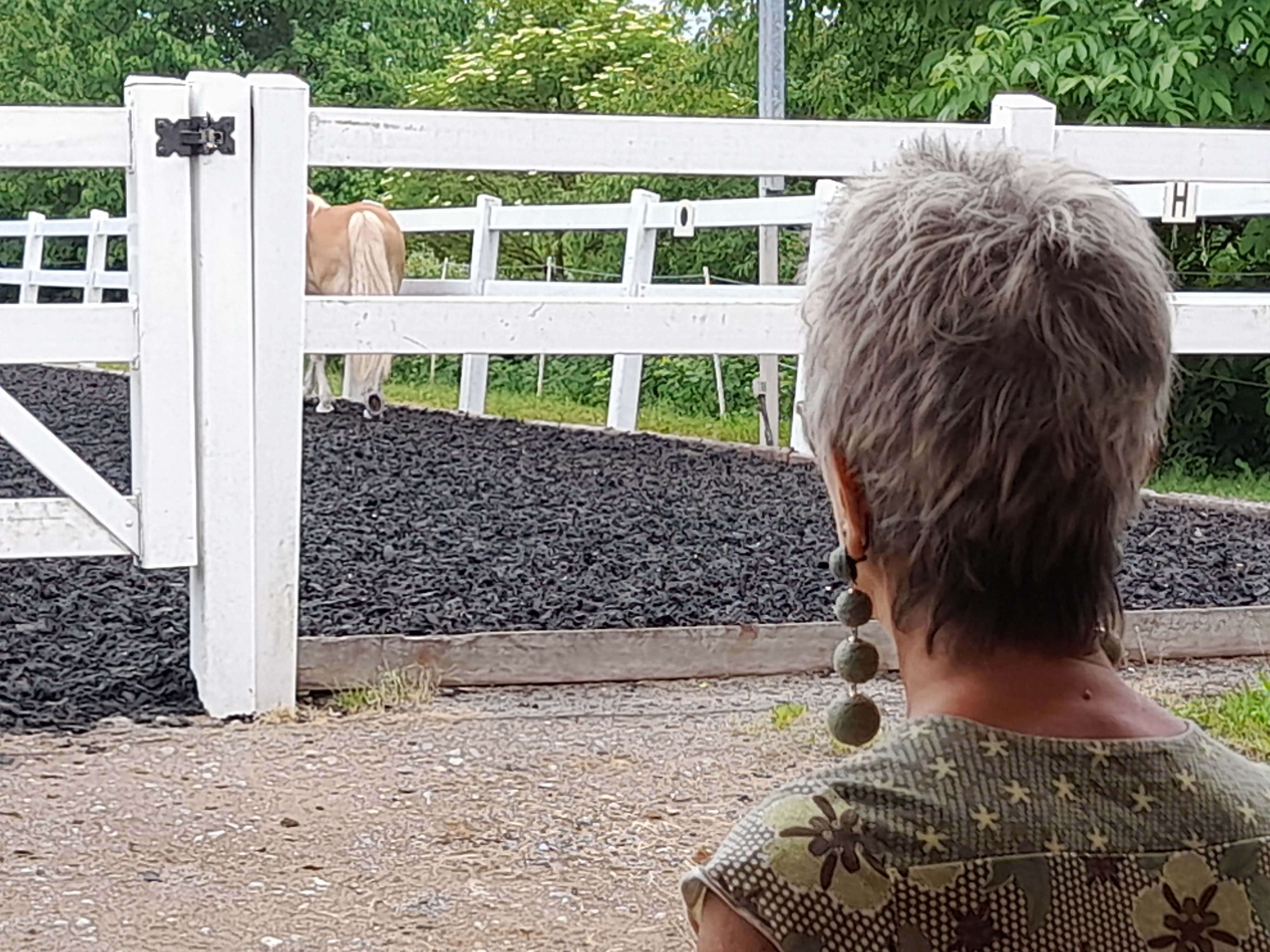 Rita’s two sisters, Birgid and Irmhild (Hilde), came shortly after we moved in to help us furnish and fit the house, and decide which furniture to use. We had three lots: Rita’s German stuff, my entire house contents from England, plus furniture from a house in Ronda, as part of my “commission” for selling it on behalf of its English owner, actually a former “girlfriend”, Maude. Rita’s two sisters, Birgid and Irmhild (Hilde), came shortly after we moved in to help us furnish and fit the house, and decide which furniture to use. We had three lots: Rita’s German stuff, my entire house contents from England, plus furniture from a house in Ronda, as part of my “commission” for selling it on behalf of its English owner, actually a former “girlfriend”, Maude.
Elder son Johannes stayed with us for several months in 2011 after we moved in. He is a Schreiner (joiner/cabinet-maker) by trade and helped me out with a lot of infrastructure work in the house, garage and garden.
In 2012 Rita’s niece Bianca came with then boyfriend Frank (since deceased, sadly). They painted the entire interior of the house, replacing the ubiquitous white walls with off-white and a feature wall in colour in each room.
Their fee? We paid for their return flights, fed and watered them, and took them on trips and for meals out.
A good deal for both parties!
Another niece, Ronja, and her husband, Markus, visited us early on. Markus did some plastering for me. He’s a teacher but knows how to plaster too.
Bianca continues to visit from time to time. Come to think of it, she is overdue and hasn’t been for a while.
My daughter Amy visited with her boyfriend Carlo, subsequently husband, and, since last year, ex-husband.
Son Tom and girlfriend Su were also early visitors.
“Hotel” Indiana
 Birgid and Hilde have both visited regularly since that first time when we moved in, accompanied by their husbands, Uwe and Egon. These two brothers-in-law have both been amazing in terms of helping out with various “jobs” while they were here, notably fixing our well pump and electricity issues in the house, which no local “professional” was capable of doing! Birgid and Hilde have both visited regularly since that first time when we moved in, accompanied by their husbands, Uwe and Egon. These two brothers-in-law have both been amazing in terms of helping out with various “jobs” while they were here, notably fixing our well pump and electricity issues in the house, which no local “professional” was capable of doing!
Uwe, a retired physiotherapist, also gives me foot massages, which helps my dodgy back.
Rita’s offspring are regulars to varying degrees.
Daughter Katrin, husband Gero and children Anton, Madita and Lotte used to come every two years up until Covid. They’ve been once since the lockdown, last year. Daughter Madita (16) has just finished the equivalent of English GCSEs and is going to visit us on her own in July (her “graduation” present, before she goes to a new school to do her Abitur (similar to A-Levels).
Johannes, I’ve already mentioned. He has been a few times. With girlfriend Tiina on that first visit in 2011, and then with long-term partner Juliane, her two children, Iona and Noah, and their daughter together, Lyra.
Jonathan (Jojo), Rita’s youngest has been a few times with different girls but his most significant visit was when he accompanied Dana, Rita’s physiotherapist niece (daughter of brother Horst), when she came to “treat” her aunt after I discharged her from hospital, after suffering from a devastating bout of Covid-19. Jojo took the pressure off me, as I was knackered from caring for Rita, sleeping badly, and I still had Covid myself.
Dana and Jojo whisked Rita off to Germany for further treatment and convalescence before returning home to me three months later. That was in 2021.
Johannes has also visited with his cousins Dana, Ronja, Torben, and Silke.
Friends Helen and Jürgen have stayed a couple of times and
Iris and Rainer own a house in Montejaque and visit the area frequently. Sometimes, they stay the odd night at “Hotel” Indiana.
My elderly mother Vera managed to visit us once before she died, even weeding and pruning in our garden. She also braved the pool!
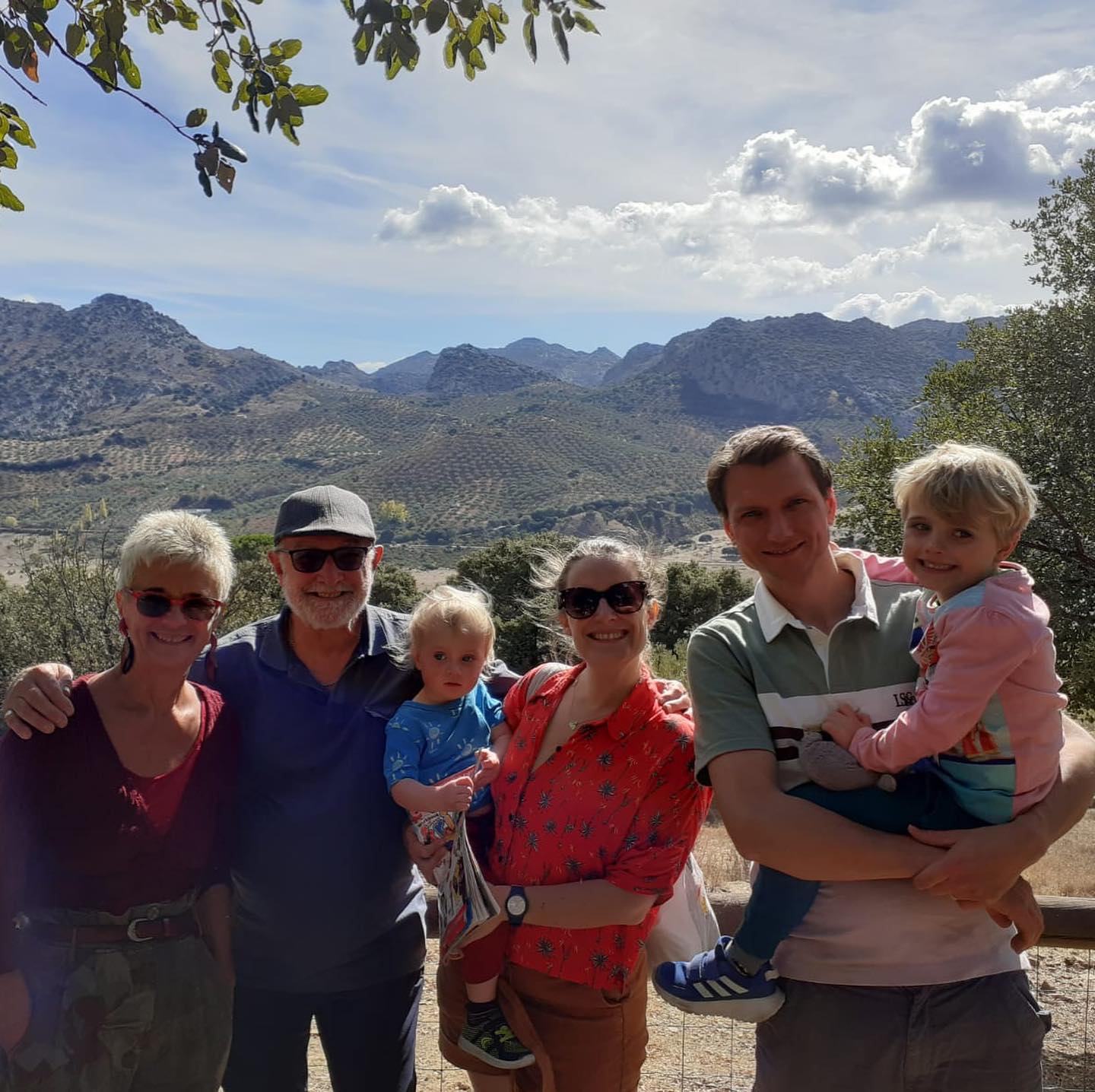 My kids, Amy and Tom, have also been regular visitors, both before and after children. Now they come with their respective young families, which now number four: Felix, Jude, Wilbur and baby Buckley. My kids, Amy and Tom, have also been regular visitors, both before and after children. Now they come with their respective young families, which now number four: Felix, Jude, Wilbur and baby Buckley.
My brother Simon and his wife Marilyn have been a few times, cousin Roger and wife Cheryl, also.
Old friends of mine have holidayed here too. Alan, a former teaching colleague from St Helens; Ian and Christine, squash and tennis partners back in the day, from Derbyshire; Andrew from my university days.
2023 onwards
Last year we had visits from childhood friends of Rita, namely Karin and Barbara, fellow nurses. We had a great laugh. They are planning to come again in 2024.
Helen, the retired doctor friend I mentioned earlier, came on her own. She and Rita worked together in a clinic in Knittlingen, partner town of Montejaque.
The afore-mentioned Iris was here just last week with friends Bernhard and Judith and they stayed in “Hotel” Indiana for a couple of nights.
Brother Simon and Marilyn spent a nice couple of weeks, as did Amy and her boys, Amy again with Aussie friend Lucy, and Tom and a pregnant Su with their son Wilbur.
Allan, a former language teaching colleague from Maghull (Merseyside), visited last year and is planning to come back again soon.
This year, Jac, a former girlfriend in Luxembourg, popped by just last month.
And so it goes on…..
Planned visitors this year include: Amy and her boys (April); Birgid (June); Tom and Su and their two (probably June/July); Madita (July); and Karin and Barbara (tba).
***
“Hotel” Indiana is like Hotel California, the massive hit by The Eagles: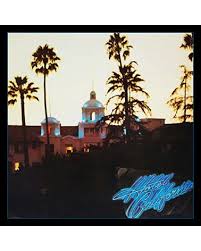
"Welcome to the Hotel California
Such a lovely place (such a lovely place)
Such a lovely face
Plenty of room at the Hotel California
Any time of year (any time of year)
You can find it here"
© Pablo de Ronda
Interesting Links:
Covid-19 is a bastard! Don’t mess with it! A cautionary tale of our times (eyeonspain.com)
Spätzle auf Spanisch - Secret Serrania de Ronda
Knittlingen in Germany, twinned with Spain's Montejaque and Benaoján - Secret Serrania de Ronda
Acknowledgements:
Karl Smallman
Paul Whitelock
www.help-me-ronda.com
www.secretserrania.com
Tags:
A-Level, Abitur, Alan, Allan, Amy, Anton, Bernhard, Bianca, Birgid, Bjorn, Buckley, Carlo, Cheryl, Christine, clinic, Covid-19, Dana, domicilio, Eagles, Egon, Felix, Frank, GCSE, Helen, Hilde, Horst, hospital, Hotel California, Hotel Indiana, Ian, Iona, Iris, Irmhild, Jac, Jeryl, Johannes, Jojo, Jonathan, Jude, Judith, Juliane, Jürgen, Karl Smallman, Katja, Klaus, Knittlingen, Lotta, lockdown, Luxembourg, Lyra, Madita, Marilyn, Markus, Maude, Montejaque, Noah, Pablo de Ronda, pandemic, Paul Whitelock, Rainer, Roger, Ronja, Schreiner, Silke, Simon, Su, Talheim, Tiina, Tom, Torben, Uwe, Villa Indiana, Wilbur
 2
Like
Published at 6:57 PM Comments (0)
2
Like
Published at 6:57 PM Comments (0)
What my car says about me
Tuesday, March 19, 2024
 Back in the day when Pablo de Ronda lived and worked in the UK, he had a car with a cherished number plate or personalised registration. He bought it for himself on reaching his half century. The number was M50 PJW. Back in the day when Pablo de Ronda lived and worked in the UK, he had a car with a cherished number plate or personalised registration. He bought it for himself on reaching his half century. The number was M50 PJW.
At that time, he put it on his “male menopause” car, a Mazda RX-8 sports car with suicide doors and a Wankel rotary engine. He later transferred it to a boring but reliable Ford Focus.
But, what do the car, the plate, and other vehicles he has owned say about him?
M50 PJW
I’d always considered people with a personalised car number plate to be posing “gits” with more money than sense, because a cherished number, as they are known in the trade, can be quite expensive. This industry is possibly the worst example of capitalism I’ve come across.
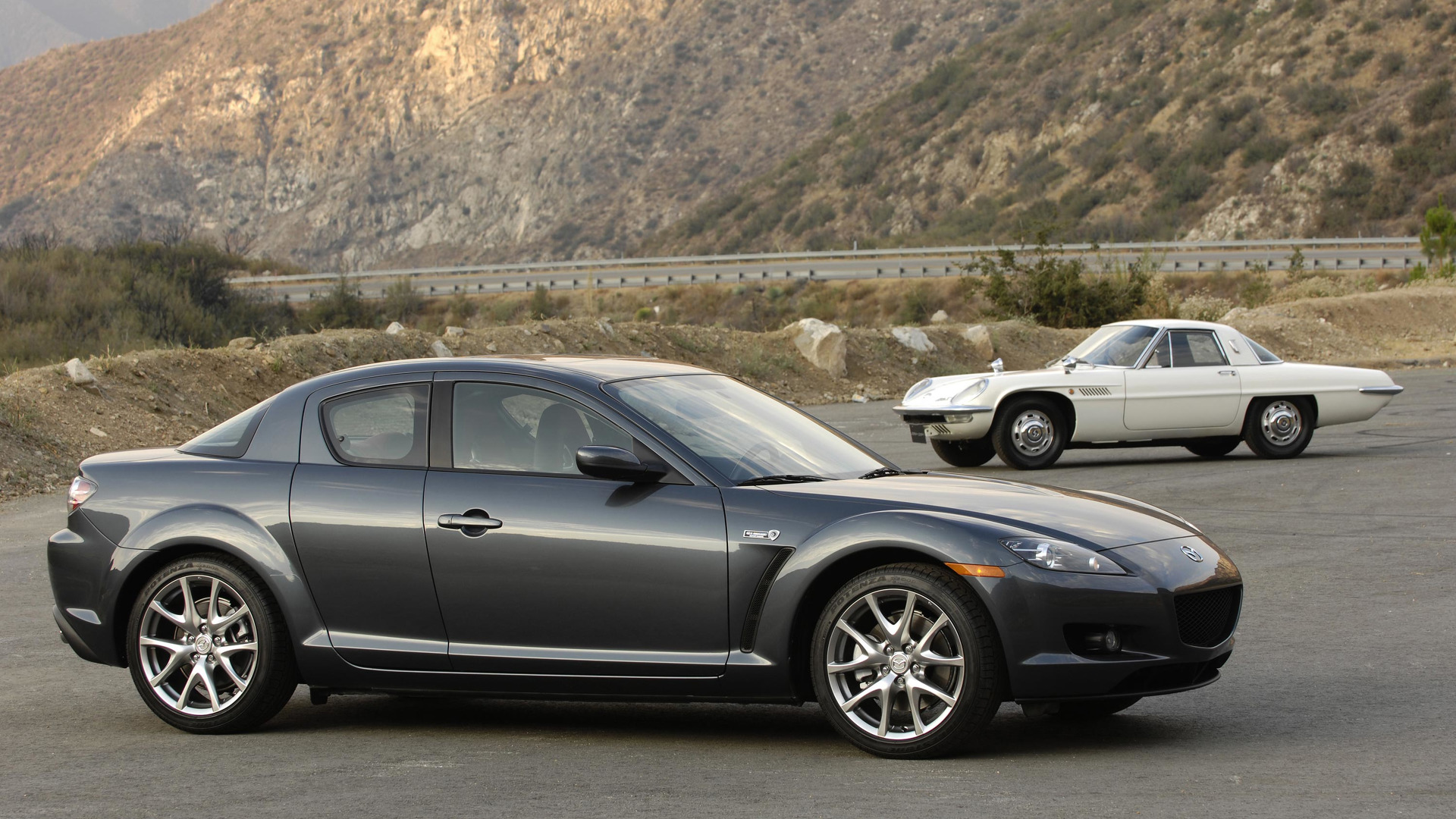 Yet, as I approached the age of 50, I had more money than sense and so I, too, became a posing “git”. I got me a nearly new Mazda RX-8, with hindsight the best car I have ever had. And found that the very apt M50 PJW was available for not too much money. M for Mazda, 50 for my age, and PJW my initials. Yet, as I approached the age of 50, I had more money than sense and so I, too, became a posing “git”. I got me a nearly new Mazda RX-8, with hindsight the best car I have ever had. And found that the very apt M50 PJW was available for not too much money. M for Mazda, 50 for my age, and PJW my initials.
By the way, my wife at the time, Jeryl, had long had a personal plate, JMW 300, her initials and the hope that one day she might be able to aspire to a BMW 3-series. It was her 40th birthday present from me.
My car-owning history
I have owned a fair few cars in my life. Whether they all said something about me, I cannot objectively judge.
The first was a Morris Minor with a split windscreen. I shared it with my mum until I went away to university. Was I a mummy’s boy?
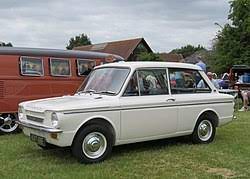 Car number two was a Hillman Imp, which I bought with the proceeds of my student job at Daimer-Benz AG in Stuttgart, Germany. That was a great little car which I ran happily for two years while still a student, until another mummy’s boy from Sheffield, where I was studying for a PGCE, drove into me and wrote “Zoe” off! Car number two was a Hillman Imp, which I bought with the proceeds of my student job at Daimer-Benz AG in Stuttgart, Germany. That was a great little car which I ran happily for two years while still a student, until another mummy’s boy from Sheffield, where I was studying for a PGCE, drove into me and wrote “Zoe” off!
I had to wait a couple of years or so until I had earned enough money from my first job as a teacher to buy another Hillman Imp, followed soon after by a “flashy” Ford Cortina, a popular company car model in the 70s. That turned out to be a “clocked” car.
The dodgy car dealer I bought from, turned out to be a serial cheat, routinely lowering the mileage on all the cars he sold, until Weights and Measures caught up with him. As a result, I received a significant sum in compensation for the sudden loss in value of my Cortina.
Time moved on and I had a Vauxhall Victor, followed by a Vauxhall Viva saloon, the latter possibly the most boring car I have ever had.
 Then, we went foreign for the first time, well only partly. We bought a Honda Accord, which was built in Swindon, under a collaboration agreement between the Japanese giant and British Leyland. That was a great car, a large saloon, which confirmed our status as nouveaux riches. Then, we went foreign for the first time, well only partly. We bought a Honda Accord, which was built in Swindon, under a collaboration agreement between the Japanese giant and British Leyland. That was a great car, a large saloon, which confirmed our status as nouveaux riches.
When I left the classroom after 15 years and became a schools adviser, I decided to buy a brand-new car for the first time. I ended up with our first completely foreign car, a Volkswagen Polo, the “car with the hole in the middle” (viz. Polo Mints advert of that time).
 I soon became bored with that and bought a second-hand Toyoya Celica. Really flashy – it was red and went like the “clappers”. I really was getting “menopausal”! The car proudly displayed a sticker of the catalán flag, because, at the time, I had a strong connection to Barcelona and El Prat de Llobregat. I soon became bored with that and bought a second-hand Toyoya Celica. Really flashy – it was red and went like the “clappers”. I really was getting “menopausal”! The car proudly displayed a sticker of the catalán flag, because, at the time, I had a strong connection to Barcelona and El Prat de Llobregat.
Next up was a fairly elderly Mazda RX-7 which I didn’t really fall in love with, so I upgraded to the nearly-new Mazda RX-8 described above.
Other cars
We’d long had two cars, for we were both working. I was commuting west to St Helens, then Bootle (both Merseyside), and Jeryl in the opposite direction to Salford (Gtr. Manchester), then to Huddersfield and finally to Bradford (both Yorkshire).
With a growing family we decided to get a people carrier, a 7-seater. We were looking for a second-hand, or pre-owned car as the motor trade euphemistically called their used vehicles.
We tried out a Ford Galaxy, a Vauxhall Zafira and an out and out “foreigner”, a Renault Espace. The latter won hands-down: the Ford was too mundane, and the Zafira too small. Besides, the Espace was lilac in colour.
 So, “The Lilac Bus”, named after a collection of eight inter-connected short stories by Irish writer Maeve Binchy (1984) and made into a TV film in 1990 by Irish Director Giles Foster, was ours. So, “The Lilac Bus”, named after a collection of eight inter-connected short stories by Irish writer Maeve Binchy (1984) and made into a TV film in 1990 by Irish Director Giles Foster, was ours.
“The Lilac Bus” confirmed my reputation as a bit of a “show-off”, but I didn’t care and nor did the grateful parents of our kids’ friends, as we ended up driving them everywhere, to drama club, dance classes, karate and swimming. And later when they started going clubbing to “Mr Smith’s”, the infamous Warrington nightclub of the 90s.
Following that, we went back to a VW, this time their Sharan model, their 7-seater. Not flashy at all, it was dark grey in colour. A great buy! Jeryl retained it for years after our divorce (see below).
Cars post-divorce and into retirement
Jeryl and I divorced in 2005 around the same time I was made redundant and took early retirement.
I moved to Bryn-a-Maen in North Wales to live with new “squeeze” Maude. I still had my Mazda RX-8, which I was still enjoying, until I realised it was impractical for the mountainous are where we lived.
It was time to return to boring automation, I got an ex-demonstrator Ford Focus, which was much more practical, and fitted my new cloth cap, pensioner image. This car too was dark grey.
 After leaving Maude, I moved in with my mum in Thelwall (Warrington) for a good while until I bought a house in nearby Latchford as a “doer-upper”. It was a Victorian detached house down on its luck. I needed a van. I opted for another Vauxhall, this time a Vivaro. After leaving Maude, I moved in with my mum in Thelwall (Warrington) for a good while until I bought a house in nearby Latchford as a “doer-upper”. It was a Victorian detached house down on its luck. I needed a van. I opted for another Vauxhall, this time a Vivaro.
I sold the Focus. After all, why does a solo bloke need two vehicles?
Around that time (September 2008) I met Rita, a German living in Montejaque, near Ronda (Málaga) where I owned an apartment.
We hit it off straightaway and after several visits to each other’s homelands and respective families I emigrated to live with her in Casa Rita.
We wed in 2010 and decided we needed to find another place to live, with easy access by car, lots of land and a pool, none of which Casa Rita offered.
By February 2011 we had our dream home, Villa Indiana in Fuente de la Higuera (Ronda). I filled the Vivaro with personal items and drove to Talheim (Baden-Wuerttemberg, Germany) with Rita to collect some things of hers that were in storage there.
We survived a busted air filter and then headed for our new home in southern Spain with overnight stops in Limoges (France) and Alicante (Spain).
Cars in Spain
Settled in our new home in Spain, we had two vehicles, the Vauxhall Vivaro and Rita’s Peugeot 206 cabriolet. The Vivaro let me down again (gearbox).
To avoid having to get it re-registered onto Spanish plates, I parked it offroad for a while, until Rainer, a German friend, made me an offer I couldn’t refuse and he took it off to Germany, where he christened it “Der Engländer”. His “missus”, Iris, drove it happily for many years, although it has now gone to the “big graveyard in the sky”.
I bought the Seat Leon of the previous owners of our new home and ran it until 2020 when I bought a house to do up in Montejaque and needed a van again.
 I bought a VW Transporter from a dodgy English neighbour (although I didn’t know that at the time) and sold the Leon. I bought a VW Transporter from a dodgy English neighbour (although I didn’t know that at the time) and sold the Leon.
Within a year, said dodgy neighbour, had incinerated the Transporter (allegedly) and wrote it off.
Carless, I bought a nearly new Peugeot 2008 from a dealer in Cádiz.
A year later Rita’s Peugeot 206 self-combusted (or was it arson again by Julian, the dodgy neighbour?)
We eventually found a replacement in Madrid, this time a Peugeot 207 cabriolet, in immaculate condition. We bought it unseen over the phone, then went on the train for a long weekend in the Spanish capital. Two nights there and another in Toledo on the way back made it a super way to buy a car!
8130 KVV
This photo of the rear of my Peugeot 2008 tells you a lot about my current life.
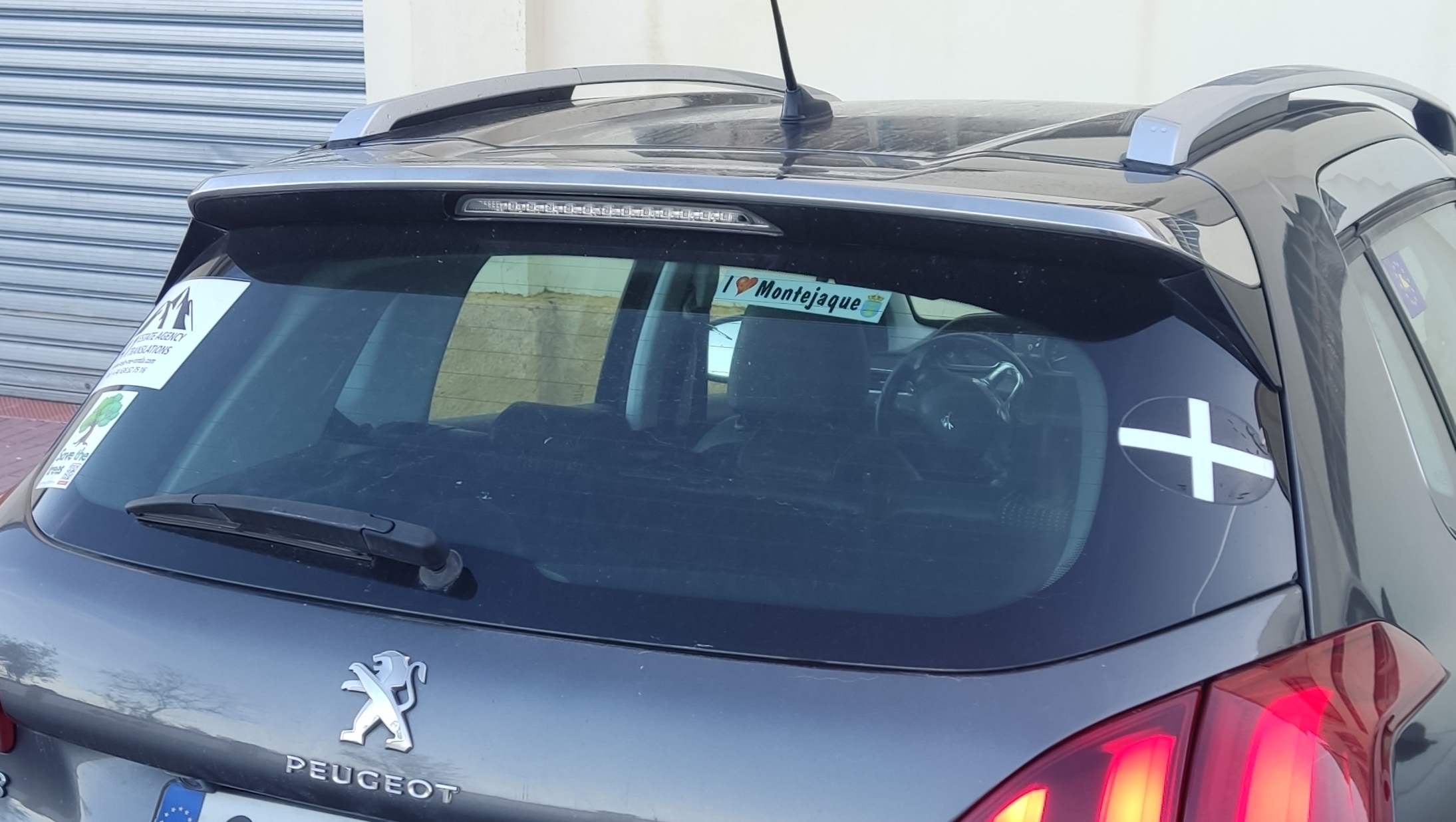
A1
A1 is my company.
Included in it are A1 Inmobiliaria (Estate Agency) and A1 Translations.
A1 INMOBILIARIA - Real Estate - A1 INMOBILIARIA Real Estate (a1-inmobiliaria-real-estate.com)
www.help-me-ronda.com
Cornish flag
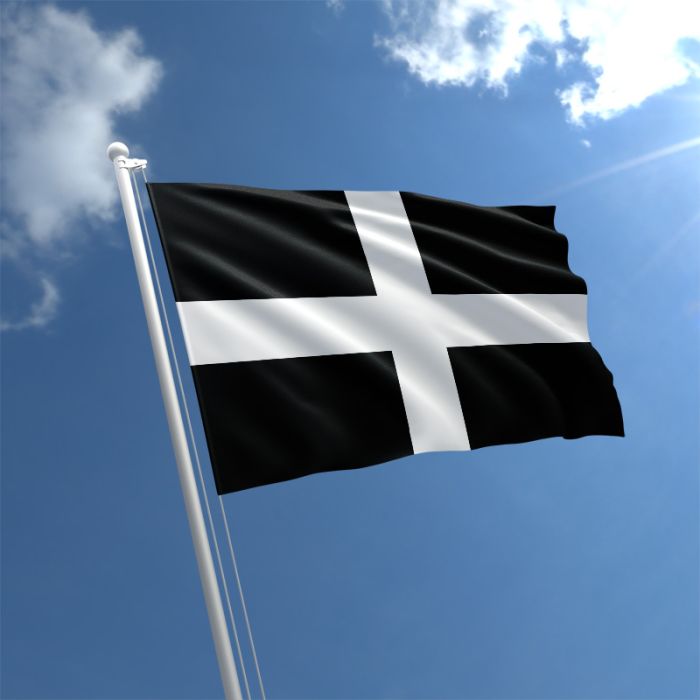 We spent a great week in Cornwall in February 2022 as guests of my brother Simon and his wife Marilyn, who own a "timeshare" there. We did some great things, eg St Michael's Mount, an open air sculpture park, Falmouth, Fish and Chips on a park bench. We spent a great week in Cornwall in February 2022 as guests of my brother Simon and his wife Marilyn, who own a "timeshare" there. We did some great things, eg St Michael's Mount, an open air sculpture park, Falmouth, Fish and Chips on a park bench.
In fact we ate great food the whole time, in restaurants, pubs, everywhere. Rita declared that it was the first time in England that she enjoyed all the food, even the Fish and Chips!
European Union flag
 The worst “crime” committed by the UK government based on mis-information and lies perpetrated by the leave lobby leading to a narrow margin in favour of “Brexit”. The worst “crime” committed by the UK government based on mis-information and lies perpetrated by the leave lobby leading to a narrow margin in favour of “Brexit”.
“The chickens are already coming home to roost”.
“I  Montejaque” Montejaque”
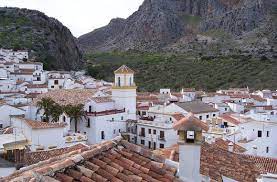 Arguably one of the prettiest of the pueblos blancos in Málaga province. It’s where Rita chose to live when she emigrated 18 years ago. It’s where I moved to when we met 16 years ago. Arguably one of the prettiest of the pueblos blancos in Málaga province. It’s where Rita chose to live when she emigrated 18 years ago. It’s where I moved to when we met 16 years ago.
It’s also where I bought a house to renovate in 2020.
Rita still has Casa Rita and I still own Casa Real, although both are for sale.
CASA REAL, MONTEJAQUE - Large modernised traditional village house in beautiful pueblo blanco - 149.000€ - Help me, Ronda (help-me-ronda.com)
CASA RITA, MONTEJAQUE - An immaculate fully renovated 3-bed, 3-bath property - 200,000€. - Help me, Ronda (help-me-ronda.com)
Peugeot
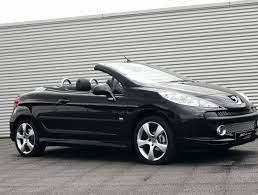 Well, they must be OK, despite being French (joke, honest!). Rita has had two and I’ve had, and still have, one, my Peugeot 2008. Well, they must be OK, despite being French (joke, honest!). Rita has had two and I’ve had, and still have, one, my Peugeot 2008.
According to many local Spaniards, the best cars are German (Mercedes, Audi and Volkswagen); then come Peugeots, which are a bit cheaper.
Strangely, Seat and Skoda are not very highly regarded, despite being part of the Volkswagen group. I had a Seat Leon, when I first came to Spain to live, and it was excellent. And when we visit Germany, we have use of Rita’s daughter’s second car, a Skoda. It’s fine.
Save the Trees
This is a campaign in Benaoján (Málaga) to save hundreds of trees that the authorities wish to hack down to make way for a water purification plant. The point is, there are better sites for this necessary upgrade, which would entail less environmental damage.
Conclusion
“What my car says about me” was my title for this article. I think most of the cars I have owned did say something about me: eg, how I was feeling at the time; the state of my finances and what I could afford; what I was doing (eg renovating houses); and pre- and post-divorce during my male menopause phase.
© Pablo de Ronda
Links:
Paul Whitelock
Wikipedia
www.help-me-ronda.com
Acknowledgements:
Karl Smallman
Peugeot
TurboSquid
ww.help-me-ronda.com
www.secretserrania.com
Tags:
8130 KVV, A1 Inmobiliaria, A1 Translations, Alicante, Audi, BMW 3-series, Baden-Wuerttemberg, Barcelona, Benaoján, Bootle, Bradford, Brexit, British Leyland, Bryn-a-Maen, cabriolet, Cádiz, capitalism, Casa Real, Casa Rita, cherished number, Daimer-Benz AG, “Der Engländer”, El Prat de Llobregat, European Union, Ford Cortina, Ford Focus, Ford Galaxy, France, Fuente de la Higuera, German, Giles Foster, Gtr. Manchester, help-me-ronda.com, Hillman Imp, Honda Accord, Huddersfield, JMW 300, Jeryl, Lilac Bus, Limoges, M50 PJW, M50 PJW, Madrid, Maeve Binchy, Málaga, male menopause, Maude, Mazda RX-7, Mazda RX-8, Mercedes, Merseyside, Montejaque, Morris Minor, Mr Smith’s, North Wales, Pablo de Ronda, personalised car number plate, personalised registration, Peugeot, Peugeot 2008, Peugeot 206, Peugeot 207, pueblos blancos, Rita, Ronda, St Helens, Salford, Save the Trees, SEAT, SEAT Leon, Sheffield, Skoda, Spain, Stuttgart, suicide doors, Swindon, Talheim, Thelwall, Toledo, Toyoya Celica, Vauxhall Victor, Vauxhall Viva, Vauxhall Vivaro, Vauxhall Zafira, Villa Indiana, VW, VW Transporter, Volkswagen, Volkswagen Polo, Wankel rotary engine, Warrington, Weights and Measures, Yorkshire, Zoe
 1
Like
Published at 11:03 PM Comments (0)
1
Like
Published at 11:03 PM Comments (0)
Lots of Carmens
Tuesday, March 5, 2024
By Pablo de Ronda
 Carmen is a common given name here in Spain. I have known a few over the course of my 50-plus-years relationship with this magnificent country. From my first visit aged 20, through subsequent holidays and work trips to the last 15 years as a resident of the Serranía de Ronda in Andalucía. Carmen is a common given name here in Spain. I have known a few over the course of my 50-plus-years relationship with this magnificent country. From my first visit aged 20, through subsequent holidays and work trips to the last 15 years as a resident of the Serranía de Ronda in Andalucía.
Carmen Bujanda
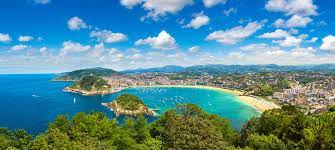 The first of my “Carmens” was a Basque, a colleague when I worked as a tourist guide in San Sebastián (Gipuzkoa) in my early 20s. The first of my “Carmens” was a Basque, a colleague when I worked as a tourist guide in San Sebastián (Gipuzkoa) in my early 20s.
“Bufanda” (scarf), as we were wont to call her, was very slim, very dark and very attractive. Unfortunately, she had a novio, who was very big and strong, so she was off-limits.
Carmen the Dancer
Still in San Sebastián in the early 70s, this Carmen was the gorgeous flamenco dancer who performed for our clients during one of the excursions we sold.
 Carmen was only 18 but already had twin girls. The story goes that she had wanted to delay starting a family, but back then Spain was still a devoutly Roman Catholic country controlled by the not-yet-dead General Franco. Carmen was only 18 but already had twin girls. The story goes that she had wanted to delay starting a family, but back then Spain was still a devoutly Roman Catholic country controlled by the not-yet-dead General Franco.
No form of contraception was available in Spain back then, not even condoms. So, she asked a friend, who used to go frequently to nearby France, to smuggle something in for her. He brought her the Pill, yet she still got pregnant. Apparently Carmen thought the pills were pessaries …..!
Other “Carmens”
As time has passed, I have known and forgotten many a Carmen. However, in the last quarter of a century, from 2000 onwards, there have been several Carmens on my radar.
Carmen "Paprika"
I first met this fluent English-speaking señora nearly a quarter of a century ago when I first came to the Barrio San Francisco in Ronda. I had two properties in the barrio and lived there for a time after I retired in 2005.
Paprika was pareja (partner) of German Martin who has lived in Ronda for many a year, after leaving hometown Frankfurt am Main for Andalucia.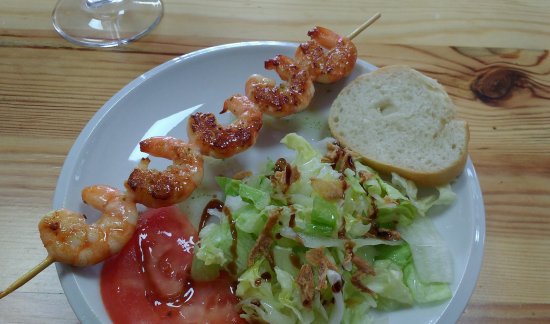
Paprika appeared in the Jamie Oliver documentary "Jamie Does Andalucia" (Channel 4, 2009) that featured Ronda and Benaojan. At the time she was "landlady" of Bar Ambigu, where a segment was filmed.
I popped into the Bar recently, but she no longer works there. According to locals she is still around in Ronda and still with her Frankfurter, Martin.
View Carmen "Paprika" with Jamie Oliver here: Jamie Does Andalucia, Spain (youtube.com)
“Carmen”, the comic opera and film
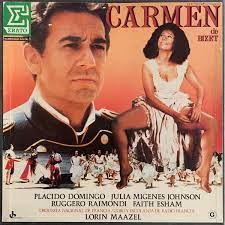 “Carmen” is an opera in four acts by the French composer Georges Bizet. The libretto was written by Henri Meilhac and Ludovic Halévy, based on the novella of the same title by Prosper Mérimée. The opera was first performed by the Opéra-Comique in Paris on 3 March 1875, where its breaking of conventions shocked audiences. “Carmen” is an opera in four acts by the French composer Georges Bizet. The libretto was written by Henri Meilhac and Ludovic Halévy, based on the novella of the same title by Prosper Mérimée. The opera was first performed by the Opéra-Comique in Paris on 3 March 1875, where its breaking of conventions shocked audiences.
The opera was adapted for a 1984 French-Italian film directed by Francesco Rosi. Julia Migenes stars in the title role, and Plácido Domingo as Don José.
The film premiered in France on March 14, 1984, and in the USA on September 20 of that year. In 1985, the film was nominated for the Golden Globe Award for Best Foreign Film.
Much of the film was shot in Ronda (Málaga) where I live, and a local bar in the Barrio Padre Jesús contains photos of the shoot, which include a very young and very slim Placido Domingo, later to become famous as one of The Three Tenors, alongside Luciano Pavarotti and José Carreras.
Carmen Myers
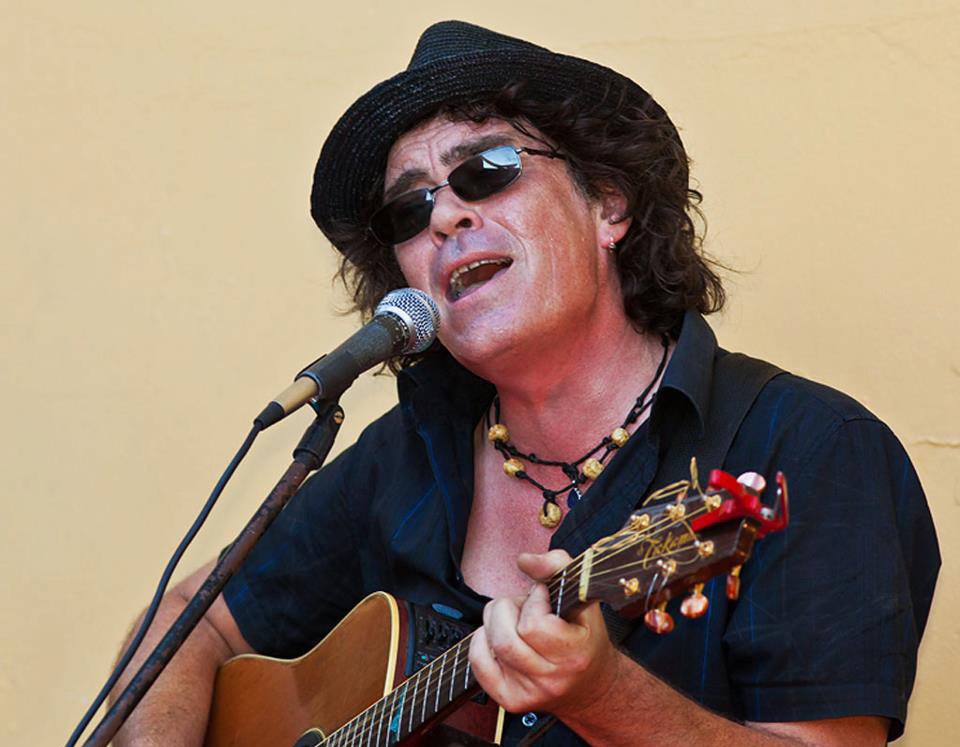 This half-Spanish, half-English lady is the wife and manager of Marcus Myers, former guitarist for the English pop duo of the 1990s and early 2000s Alisha’s Attic. The two singers were sisters Shelly and Karen Poole, whose father is Brian Poole of 1960s group Brian Poole and the Tremeloes. This half-Spanish, half-English lady is the wife and manager of Marcus Myers, former guitarist for the English pop duo of the 1990s and early 2000s Alisha’s Attic. The two singers were sisters Shelly and Karen Poole, whose father is Brian Poole of 1960s group Brian Poole and the Tremeloes.
Carmen is a great singer in her own right. I remember a super rendition by Carmen and Marcus of The Beatles song “In My Life" at the funeral in 2023 of our mutual friend Guy Hunter-Watts, 64, the author of 12 books about walking in southern Spain.
Two Carmens in a week!
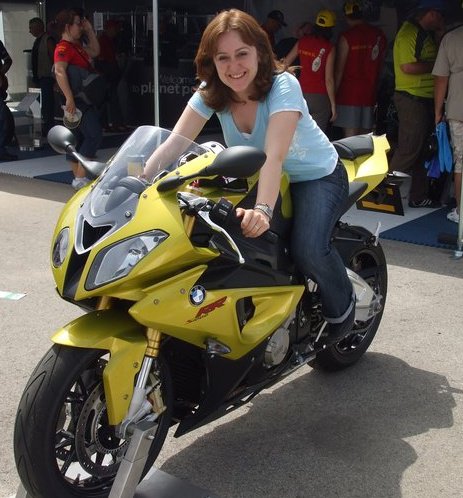 This past week I have come across two Carmens. This past week I have come across two Carmens.
The first was an amateur production of the opera “Carmen” by Bizet (see above) in our local theatre in Ronda. We decided to go. The theatre was packed, but unfortunately the production was not very good, so we left at the interval and went for dinner instead.
Then, yesterday, I showed an American client who is looking to buy a house around here, one of the “houses on my books” (I dabble in house sales as a corredor, or unofficial estate agent).
My contact to arrange a viewing was Carmen, the lawyer daughter of retired Seville-based doctor Rafael and his retired teacher wife, also Carmen.
Carmen, daughter, lives and works in Ronda. As it turned out we had met before. She is the lawyer for a local electricity provider who tried to overcharge me for a house re-wire.
It’s a small world (el mundo es un pañuelo).
© Pablo de Ronda
Links:
Guy Hunter-Watts, author and walking guide, RIP (eyeonspain.com)
VIDEO: Three Jamies - including celebrity TV chef Jamie Oliver - in one day! (secretserrania.com)
www.marcusmyersmusic.com
www.help-me-ronda.com
Acknowledgements:
Carmen Narvaez
Paul Whitelock
Discogs
Wikipedia
www.secretserrania.com
Tags:
Alisha's Attic, Beatles, Benaojan, Bizet, Brian Poole, Brian Poole and the Tremeloes, Carmen, Carmen Bujanda, Carmen Myers, Carmen Narvaez, condom, contraception, Cortes de la Frontera, bufanda, dancer, Franco, Guy Hunter-Watts, "In My Life", "Jamie does Andalucia", Jamie Oliver, Jose Carreras, Karen Poole, Luciano Pavarotti, Marcus Myers, Montecorto, Pablo de Ronda, "Paprika", Paul Whitelock, Placido Domingo, Prosper Mérimée, Rafael Narvaez, Ronda, San Sebastian, Shelly Poole, Spain,
 3
Like
Published at 7:35 AM Comments (0)
3
Like
Published at 7:35 AM Comments (0)
Spam post or Abuse? Please let us know
|
|